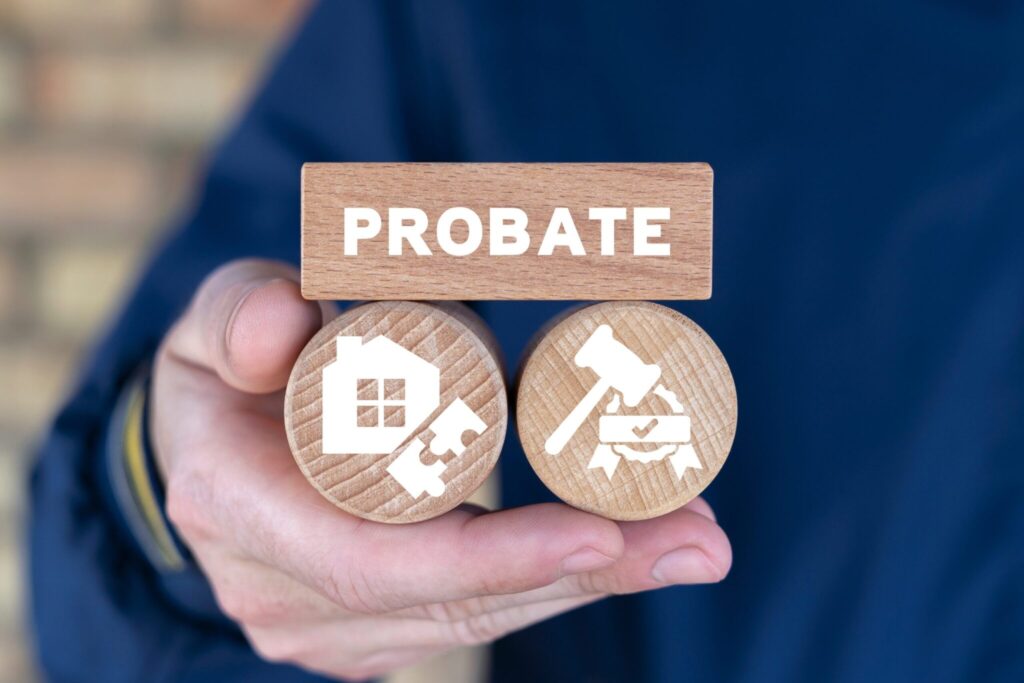Dealing with probate can be complex and daunting, especially when luxury real estate is involved. Texas, with its unique probate laws and procedures, requires a clear understanding of the steps and nuances associated with handling such estates. This comprehensive guide will walk you through the intricacies of managing probate for luxury real estate in Texas, from understanding probate basics to executing a smooth and efficient process.
Understanding Probate in Texas
Probate is the legal process through which a deceased person’s will is validated and their estate is distributed. It involves several key steps: proving the will, appointing an executor, taking inventory of the estate, paying off debts, and distributing the remaining assets to beneficiaries. In Texas, probate is generally straightforward but can become more complex when high-value assets like luxury real estate are involved.
Key Terms in Texas Probate
Before diving into the specifics, it’s essential to familiarize yourself with some key terms commonly used in Texas probate:
- Decedent: The deceased person whose estate is being probated.
- Executor: The person named in the will to manage the estate.
- Administrator: The person appointed by the court to manage the estate if there is no will.
- Beneficiary: A person or entity named in the will to receive assets.
- Heir: A person entitled by law to inherit from someone who dies without a will.

How to Initiate Probate for Luxury Real Estate in TexasInitiating Probate
Filing the Will
The first step in the probate process is filing the will with the probate court in the county where the decedent lived. This must be done within four years of the decedent’s death. If no will exists, an heir or interested party must file an application to initiate the probate process.
Appointing an Executor
If the will names an executor, the court will usually appoint that person to administer the estate. If not, or if the named executor is unable or unwilling to serve, the court will appoint an administrator. The executor or administrator is responsible for managing the estate throughout the probate process.
Inventorying the Estate
Identifying Assets
The executor must identify and take inventory of all the decedent’s assets, including luxury real estate, bank accounts, investments, personal property, and more. This can be particularly challenging with luxury real estate, as such properties may include vacation homes, investment properties, or homes with unique features and high market values.
Valuing the Estate
Accurately valuing the estate is crucial. Luxury real estate can significantly impact the estate’s total value, affecting tax liabilities and the distribution process. Hiring a professional appraiser experienced in high-value properties ensures an accurate assessment.
Managing Luxury Real Estate During Probate
Maintaining the Property
Luxury properties often require ongoing maintenance to preserve their value. The executor must ensure that the property is properly maintained, including landscaping, security, and necessary repairs. This might also involve paying property taxes, insurance, and utility bills from the estate’s funds.
Renting or Leasing
In some cases, it may be beneficial to rent or lease the property during the probate process to generate income for the estate. This can help cover ongoing expenses and prevent the property from becoming a financial burden.
Selling the Property

If the will dictates or the beneficiaries agree, the luxury real estate may need to be sold. The executor must handle this process carefully, considering market conditions and working with real estate professionals who specialize in high-end properties to achieve the best possible sale price.
Addressing Debts and Liabilities
Before distributing assets, the executor must settle the decedent’s debts and liabilities. This includes notifying creditors, paying off outstanding debts, and handling any disputes. Texas law provides specific procedures for creditor claims, which must be followed meticulously to avoid complications.
Notifying Creditors
The executor must notify known creditors of the decedent’s death and the probate proceedings. This usually involves publishing a notice in a local newspaper and sending direct notices to all known creditors.
Settling Debts
Once creditors are notified, the executor must review and validate claims. Approved claims are paid from the estate’s assets. If the estate lacks sufficient funds, Texas law prioritizes certain debts over others.
Distributing the Estate
Following the Will’s Instructions
Once debts and expenses are settled, the executor distributes the remaining assets according to the will’s instructions. This can be straightforward or complex, depending on the will’s terms and the nature of the assets. Luxury real estate may be left to one beneficiary, divided among several, or sold with the proceeds distributed.
Handling Disputes
Family dynamics and significant assets can lead to disputes among beneficiaries. It’s crucial to handle conflicts diplomatically and seek legal mediation if necessary. The executor must remain neutral and act in the estate’s best interests, following the will’s terms and Texas law.
Finalizing the Probate Process
Filing the Final Accounting
The executor must prepare and file a final accounting with the probate court, detailing all actions taken during the probate process. This includes a complete record of income, expenses, and distributions. The court reviews this report to ensure all duties have been properly fulfilled.
Closing the Estate
After the court approves the final accounting, the executor can proceed to close the estate. This involves distributing any remaining assets, obtaining receipts from beneficiaries, and ensuring all legal requirements are met. The court will then issue an order officially closing the probate case.
Special Considerations for Luxury Real Estate
Tax Implications
Luxury real estate can significantly impact estate taxes. Texas does not have a state estate tax, but federal estate taxes may apply depending on the estate’s value. Executors should work with tax professionals to understand and address any tax liabilities.
Market Conditions
The real estate market can affect the probate process, especially for luxury properties. Market conditions may influence decisions about whether to sell or hold the property. Executors should stay informed about market trends and seek advice from real estate experts.
Legal and Professional Guidance
Handling probate for luxury real estate often requires specialized knowledge and expertise. Executors should work closely with attorneys, accountants, appraisers, and real estate professionals to navigate the complexities and ensure compliance with Texas probate laws.
Additional Considerations for Executors
Communication with Beneficiaries
Maintaining open and transparent communication with beneficiaries is crucial throughout the probate process. Regular updates and clear explanations of actions taken can help prevent misunderstandings and conflicts.
Protecting the Estate from Claims
Executors must be vigilant in protecting the estate from fraudulent claims and ensuring that all legitimate claims are properly addressed. This involves careful record-keeping and, when necessary, seeking legal advice.
Managing Digital Assets

In today’s digital age, the decedent may have owned significant digital assets, such as cryptocurrency, online businesses, or digital art. Executors need to identify and manage these assets according to the will’s instructions and legal requirements.
Handling Foreign Assets
If the decedent owned luxury real estate or other assets in other states or countries, the executor might need to navigate additional legal processes, such as ancillary probate or international estate laws. Professional guidance is essential in these cases to ensure compliance with all relevant legal requirements.
Case Studies: Real-Life Scenarios
Case Study 1: Maintaining a High-Value Vacation Home
Consider the case of an executor managing a high-value vacation home in Texas Hill Country. The property required significant maintenance to preserve its value, including landscaping, security, and seasonal repairs. By renting the property as a luxury vacation rental, the executor generated income to cover these expenses, ensuring the estate remained financially stable.
Case Study 2: Selling a Historic Mansion
In another scenario, an executor was tasked with selling a historic mansion in Austin. The property had unique architectural features and significant historical value, requiring specialized marketing strategies. By working with a real estate agent experienced in luxury properties, the executor successfully sold the mansion at a premium price, benefiting the estate and its beneficiaries.
Case Study 3: Navigating Complex Family Dynamics
In a complex family situation, the executor had to mediate disputes among beneficiaries over a luxury beachfront property. Through clear communication and legal mediation, the executor facilitated an agreement to sell the property and equitably distribute the proceeds, ensuring compliance with the decedent’s wishes and maintaining family harmony.
Conclusion: Mastering Probate for Luxury Real Estate in Texas
Handling probate for luxury real estate in Texas is a multifaceted process that demands attention to detail, legal knowledge, and financial acumen. From filing the will and inventorying assets to managing and distributing high-value properties, the executor’s role is both challenging and rewarding.
By understanding the probate process, maintaining the property, addressing debts, and navigating legal requirements, executors can successfully manage luxury real estate estates. Seeking professional guidance and remaining committed to the decedent’s wishes and the beneficiaries’ best interests will ensure a smooth and efficient probate experience. With this comprehensive guide, you are better equipped to handle the complexities of probate for luxury real estate in Texas, ensuring a seamless transition and honoring the legacy of the decedent.








